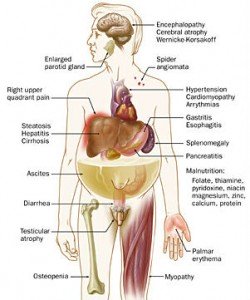Q: Doesn’t the promotion of the “disease concept” help addicts avoid taking responsibility for their behavior?
A: The only people I’ve ever heard use the “disease concept” as an excuse are practicing alcoholics who have no real intention of changing. I hear something totally different from Rescue Mission counselors and other professionals who subscribe to what has been called the “clinical approach” to treatment and recovery.

While recognizing the impact of factors like heredity and brain chemistry in the development of addiction, they know that real change happens only when addicts and alcoholics begin to take responsibility for their lives and truly “own” their behaviors.
As a matter of fact, they tend to believe that knowing one is an alcoholic or drug addict brings with it a greater accountability. If an individual truly accepts personal powerlessness over alcohol and drugs, he or she must begin following very specific action steps that lead to recovery.
Building the right sort of accountability into the lives of recovering addicts includes:
- A. Accountability to God
Every recovering addict must learn the discipline of maintaining a clear conscience. Freedom from guilt and shame are essential elements of relapse prevention. This involves:
- 1) learning to be sensitive to the conviction of the Holy Spirit and practicing daily repentance
2) increased self-awareness through the discipline of a daily personal inventory.
B. Accountability for Righting Past Wrongs
No one can move confidently into the future if he or she is carrying unbearable burdens from past failures. Every addict who wants to move into a new, satisfying life must be deliberate about making amends, especially to family members and others close to them.
C. Accountability to a Spiritual Community
Real growth in recovery involves much more than just going to church. Spiritual stability and maturity happen in the context of a church home. They need to develop friendships with “normal” people, find spiritual nurturing and guidance, experience the joy of corporate worship, and find an outlet for meaningful Christian service.
D. Accountability to a Group Of Peers
The biblical mandate for support groups is found in 2 Corinthians 1:3-4, where the Apostle Paul expresses thankfulness for being able to comfort others with the same comfort he himself had received from God. There is special power and a special degree of grace present when one recovering addict shares his or her experience, strength and hope with another who is experiencing similar struggles.
E. Accountability to a Sponsor/Mentor – Participation in support groups and church is essential. But, they work best when a recovering addict also has one special person of the same sex who is farther along in the journey of recovery to whom he or she can
be accountable. There is no replacement for having this confessor and confidant, especially in the early days of recovery.
So, how does this work in a residential recovery program setting?
-
A. Use the Twelve Steps, making the fourth and fifth steps (listing of sins and confessing them to God and another individual) and eighth and ninth steps (listing persons harmed and making amends wherever possible) a requirement for advancement in the program.
B. Before they can graduate from the recovery program, require each participant to become established in a home church and a support group that relates specifically to his or her personal issues.
C. As individuals approach graduation and move into transitional, less intensive phases of a residential program, they should be encouraged to begin seeking a sponsor or mentor. The goal is to have someone in place before they actually graduate and leave the facility.
A recovery program is only effective when participants can get to the place in life where its services are no longer needed.
To do this, participants must learn to transfer dependence on the program or the mission to dependence on God –
and dependence on other healthy relationships. Most of the important learning in recovery occurs in the years following completion of a residential program.
Through many ups and downs, successes and defeats, program graduates learn to live out the new lives they began while in the program. Having the right sort of accountability in the context of a healthy support network is the key to making this all work.
